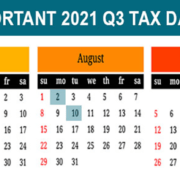Are you a Nonworking Spouse? You Could Still Contribute to an IRA
Married couples may not be able to save as much as they need for retirement when one spouse doesn’t work outside the home — perhaps so that spouse can take care of children or elderly parents. In general, an IRA contribution is allowed only if a taxpayer earns compensation. However, there’s an exception involving a “spousal” IRA. It allows contributions to be made for nonworking spouses.
For 2021, the amount that an eligible married couple can contribute to an IRA for a nonworking spouse is $6,000, which is the same limit that applies for the working spouse.
IRA advantages
As you may know, IRAs offer two types of advantages for taxpayers who make contributions to them.
- Contributions of up to $6,000 a year to an IRA may be tax deductible.
- The earnings on funds within the IRA are not taxed until withdrawn. (Alternatively, you may make contributions to a Roth IRA. There’s no deduction for Roth IRA contributions, but, if certain requirements are met, distributions are tax-free.)
As long as the couple together has at least $12,000 of earned income, $6,000 can be contributed to an IRA for each, for a total of $12,000. (The contributions for both spouses can be made to either a regular IRA or a Roth IRA, or split between them, as long as the combined contributions don’t exceed the $12,000 limit.)
Boost contributions if 50 or older
In addition, individuals who are age 50 or older can make “catch-up” contributions to an IRA or Roth IRA in the amount of $1,000. Therefore, for 2021, for a taxpayer and his or her spouse, both of whom will have reached age 50 by the end of the year, the combined limit of the deductible contributions to an IRA for each spouse is $7,000, for a combined deductible limit of $14,000.
There’s one catch, however. If, in 2021, the working spouse is an active participant in either of several types of retirement plans, a deductible contribution of up to $6,000 (or $7,000 for a spouse who will be 50 by the end of the year) can be made to the IRA of the nonparticipant spouse only if the couple’s AGI doesn’t exceed $125,000. This limit is phased out for AGI between $198,000 and $208,000.
Contact us if you’d like more information about IRAs or you’d like to discuss retirement planning.
© 2021












